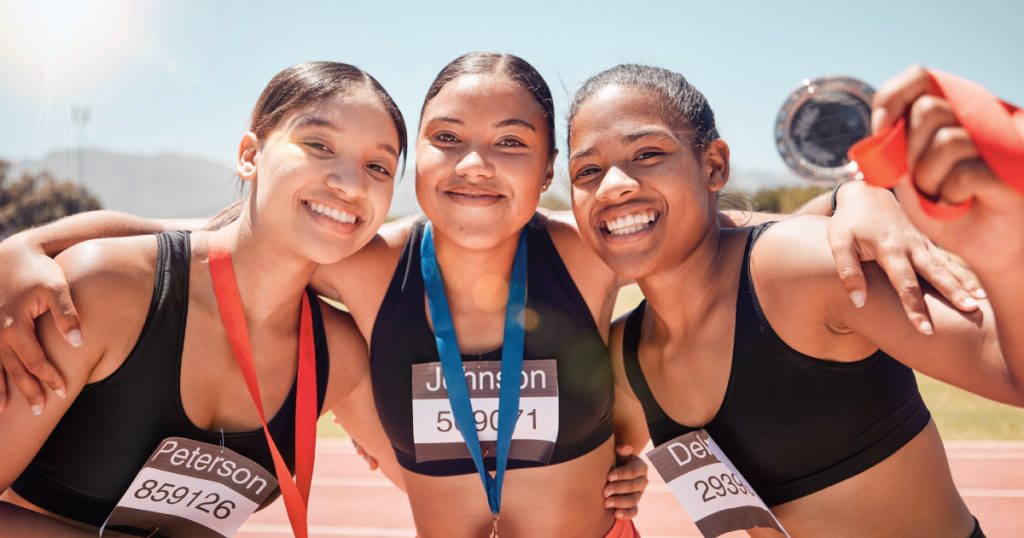The NCAA announced on February 6 its Board of Governors voted to update the Association’s participation policy for transgender student-athletes following the Trump administration’s executive order. The new policy limits competition in women’s sports to student-athletes assigned female at birth only. The policy permits student-athletes assigned male at birth to practice with women’s teams and receive benefits such as medical care while practicing. This policy is effective immediately and applies to all student-athletes regardless of previous eligibility reviews under the NCAA’s prior transgender participation policy.

President Donald J Trump took to Truth Social praising the move by the NCAA stating it is “a great day for women and girls across our Country.”
“Exciting news! Due to my Executive Order, which I proudly signed yesterday, the NCAA has officially changed their policy of allowing men in Women’s Sports – IT IS NOW BANNED! This is a great day for women and girls across our Country. Men should have NEVER been allowed to compete against women in the first place, but I am proud to be the President to SAVE Women’s Sports. We expect the Olympics Committee to also use Common Sense, and implement this policy, which is very popular among the American People, and the entire World,” President Trump wrote.
“The NCAA is an organization made up of 1,100 colleges and universities in all 50 states that collectively enroll more than 530,000 student-athletes. We strongly believe that clear, consistent, and uniform eligibility standards would best serve today’s student-athletes instead of a patchwork of conflicting state laws and court decisions. To that end, President Trump’s order provides a clear, national standard,” NCAA President Charlie Baker said.
The Executive Order titled “Keeping Men Out of Women’s Sport’s,” signed by President Trump on February 5 would “rescind all [federal] funds from educational programs that deprive women and girls of fair athletic opportunities, which results in the endangerment, humiliation, and silencing of women and girls and deprives them of privacy” and to “oppose male competitive participation in women’s sports more broadly, as a matter of safety, fairness, dignity, and truth.”
The Trump administration states that allowing trans girls and trans women to compete against biological women in female sports is a violation of Title IX of the Education Amendments Act of 1972 (Title IX) by denying biological women an equal opportunity to participate in sports.
The Board of Governors also directed staff to help all member schools foster respectful and inclusive collegiate athletic cultures. Following student-athlete leadership direction, the NCAA recently updated its Mental Health Best Practices. The NCAA requires all schools to make mental health services and resources available to all student-athletes consistent with the Mental Health Best Practices.
“The updated policy combined with these resources follows through on the NCAA’s constitutional commitment to deliver intercollegiate athletics competition and to protect, support and enhance the mental and physical health of student-athletes,” Baker said. “This national standard brings much needed clarity as we modernize college sports for today’s student-athletes.”
In April 2024, the National Association of Intercollegiate Athletics (NAIA) Council of Presidents approved a policy mandating that only athletes assigned female at birth will only be allowed to compete in women’s sports for all of its competitions. It was the first national college governing body banning transgender athletes from competing in women’s sport competitions.
NCAA Resources and Policies:
- Policy for transgender student-athletes
- Mental health initiatives
- resources to support respectful and inclusive collegiate athletic cultures
NCAA men’s sports:
- Regardless of sex assigned at birth or gender identity, a student-athlete may participate (practice and competition) in NCAA men’s sports, assuming they meet all other NCAA eligibility requirements.
- Student-athletes taking a banned substance (e.g., testosterone) must complete the medical exception process.
NCAA women’s sports:
- A student-athlete assigned male at birth may not compete for an NCAA women’s team.
- A student-athlete assigned male at birth may practice on an NCAA women’s team and receive all other benefits applicable to student-athletes. Division I leadership is planning to adopt roster limits in place of scholarship limits and new practice squad policies are still in development.
- A student-athlete assigned female at birth who has begun hormone therapy (e.g., testosterone) may not compete on a women’s team. If such competition occurs, the team will be subject to NCAA mixed-team legislation, and the team will no longer be eligible for NCAA women’s championships.
- A student-athlete assigned female at birth who has begun hormone therapy (e.g., testosterone) may continue practicing with a women’s team and receive all other benefits applicable to student-athletes.
- Individual schools have the autonomy to determine athletics participation on their campuses.
- NCAA schools are subject to local, state and federal legislation and such policy supersedes the rules of the NCAA.
- Sports with mixed men’s and women’s NCAA championships are exempt from this policy (e.g., rifle).
Author: Mario Lotmore












